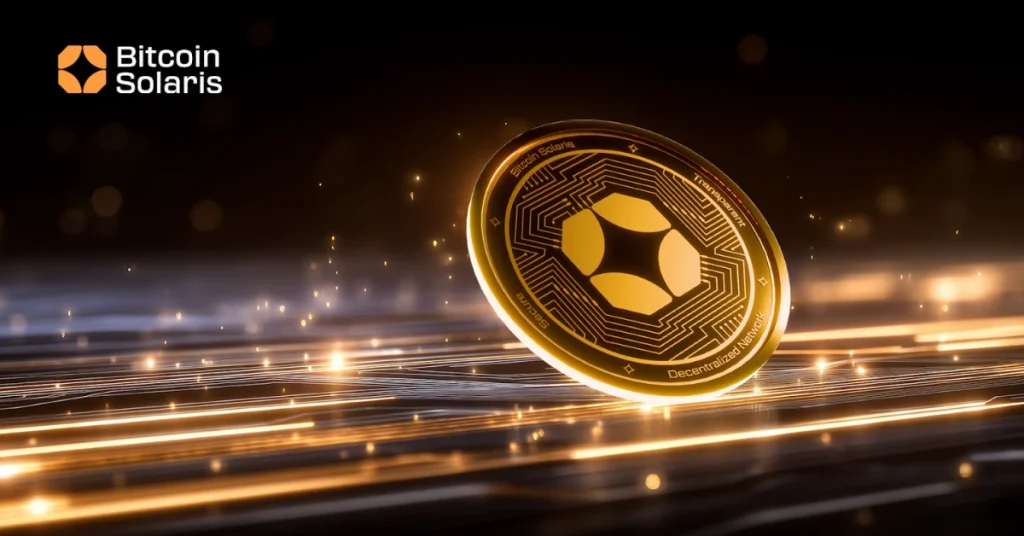ARTICLE AD BOX

The post Turing-Complete VM: Bitcoin Solaris Enhances Tezos Smart Contract Capabilities appeared first on Coinpedia Fintech News
Tezos introduced formal verification into blockchain with its Michelson smart contract language, prioritizing safety and predictability. While ideal for simple, logic-bound contracts, Michelson’s restricted syntax and non-Turing-complete architecture limit its use in advanced, dynamic applications. Bitcoin Solaris addresses this constraint by deploying a Turing-complete virtual machine (VM) across its execution layer — enabling developers to build complex, flexible smart contracts that scale across verticals.
With native support for full arithmetic logic, loop conditions, recursion, and state management, the Bitcoin Solaris VM opens smart contract design to real-world, multi-layered use cases. Combined with high throughput and formal auditability, this system creates the foundation for advanced tech deployments — from automated financial instruments to industrial IoT coordination and secure data marketplaces.
Dual-Layer Execution Engine Designed for Programmability
Bitcoin Solaris operates on a dual-layer architecture purpose-built for separation of concerns:
- The Base Layer handles security and settlement using Proof-of-Stake (PoS) and Proof-of-Capacity (PoC). It stores finalized states and maintains validator consensus over transaction history.
- The Solaris Layer manages execution using Proof-of-History (PoH) and Proof-of-Time (PoT), processing contracts with deterministic sequencing and 10,000+ TPS capability.
The Turing-complete VM is embedded within the Solaris Layer. Unlike Tezos, where smart contract logic is constrained by the static structure of Michelson, Solaris developers can implement full program logic — including data-driven conditions, on-chain oracles, dynamic memory allocation, and recursive state functions. This flexibility is essential for advanced tech protocols that require real-time contract updates, adaptive logic, or multi-party coordination.
Developer-Centric Tools and Audit-Ready Compilation
Bitcoin Solaris supports modern development workflows through a high-level language abstraction layer, enabling smart contracts to be written in common programming languages that compile down to secure bytecode. Built-in tooling allows developers to simulate contracts across states, verify gas efficiency, and apply formal checks during deployment.
The platform also includes support for:
- Modular upgrades
- Stateful DApps
- Cross-contract communication
- Secure randomness
- Encrypted parameter calls
Together, these capabilities eliminate the friction faced by developers building on platforms like Tezos, where advanced logic requires heavy workarounds. For advanced tech builders focused on automation, AI coordination, or real-time DeFi triggers, the Solaris VM architecture allows direct, efficient implementation at the contract layer.
Crypto Legends analyzed the practical limits of Michelson and how Bitcoin Solaris’s Turing-complete VM resolves common development bottlenecks. The video also explores real-world examples where advanced contract logic is required.
Security Verified Across Layers and Execution Pathways
Smart contract reliability depends on more than programmability—it requires secure runtime environments. Bitcoin Solaris’s infrastructure has undergone comprehensive audits to ensure VM logic, execution constraints, and finality safeguards are secure and predictable:
- Cyberscope Audit: Validated smart contract opcode behavior and runtime memory handling
- Freshcoins Audit: Reviewed Solaris Layer’s Turing-complete bytecode interpreter and multi-threaded execution
- KYC Verification: Confirmed project governance and technical oversight credentials
These reviews confirm that advanced contracts can be executed safely, with consistent state guarantees and minimal gas manipulation risk — a core requirement for deploying advanced tech at scale.
Presale Phase 3: Build and Participate Before Developer Onboarding Expands
Bitcoin Solaris is currently in Presale Phase 3, with BTC-S tokens priced at 3 USDT. This stage offers early access ahead of the public contract registry launch and before developer grants are issued for building within the Turing-complete VM ecosystem.
The total supply is fixed at 21 million BTC-S, with 4.2 million tokens (20%) allocated for presale. There is no inflation, and token distribution is tied to mobile mining and validator engagement. Early contributors gain access to contract deployment rights, developer tooling, and resource priority before full network saturation.
Tezos pioneered secure smart contracts — but Bitcoin Solaris goes further, enabling full programmatic expression through a Turing-complete VM layered within a scalable, high-speed execution environment. For developers and institutions building in advanced tech sectors, Bitcoin Solaris offers the flexibility, performance, and security needed to support next-generation decentralized applications.
As presale access continues and developer resources roll out, Bitcoin Solaris redefines what smart contract capability truly looks like.
- Website: https://bitcoinsolaris.com/
- X: https://x.com/BitcoinSolaris
- Telegram: https://t.me/Bitcoinsolaris
.png)
 7 hours ago
1
7 hours ago
1








 English (US)
English (US)